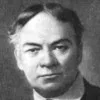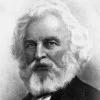I’ve never understood why people consider youth a time of freedom and joy. It’s probably because they have forgotten their own.
Margaret Atwood (b. 1939) Canadian writer, literary critic, environmental activist
“Hair Jewellery,” Dancing Girls (1982)
(Source)
Quotations about:
nostalgia
Note not all quotations have been tagged, so Search may find additional quotes on this topic.
Horace and Aristotle already told us about the virtues of their forefathers and the vices of their times, and authors down through the centuries have spoken in like manner. If they had told the truth, men would nowadays be bears.
[Horace et Aristote nous ont déjà parlé des vertus de leurs pères, et des vices de leur temps, et les auteurs de siècle en siècle nous en ont parlé de même. S’ils avaient dit vrai, les hommes seraient à présent des ours.]Charles-Lewis de Secondat, Baron de Montesquieu (1689-1755) French political philosopher
Pensées Diverses [Assorted Thoughts], # 396 (1720-1755) [tr. Clark (2012)]
(Source)
(Source (French)). Alternate translation:Horace and Aristotle told us of the virtues of their fathers, and the vices of their own time, and authors down through the centuries have told us the same. If they were right, men would now be bears.
[E.g.]
I like to sit and have a talk sometimes with that odd little chap that was myself long ago. I think he likes it too, for he comes so often of an evening when I am alone with my pipe, listening to the whispering of the flames. I see his solemn little face looking at me through the scented smoke as it floats upward, and I smile at him; and he smiles back at me, but his is such a grave, old-fashioned smile. We chat about old times; and now and then he takes me by the hand, and then we slip through the black bars of the grate and down the dusky glowing caves to the land that lies behind the firelight. There we find the days that used to be, and we wander along them together. He tells me as we walk all he thinks and feels. I laugh at him now and then, but the next moment I wish I had not, for he looks so grave I am ashamed of being frivolous. Besides, it is not showing proper respect to one so much older than myself — to one who was myself so very long before I became myself.
Jerome K. Jerome (1859-1927) English writer, humorist [Jerome Klapka Jerome]
Idle Thoughts of an Idle Fellow, “On Memory” (1886)
(Source)
First published in Home Chimes (1885-09-26).
Let us have done with vain regrets and longings for the days that never will be ours again. Our work lies in front, not behind us; and “Forward!” is our motto. Let us not sit with folded hands, gazing upon the past as if it were the building; it is but the foundation. Let us not waste heart and life thinking of what might have been and forgetting the may be that lies before us. Opportunities flit by while we sit regretting the chances we have lost, and the happiness that comes to us we heed not, because of the happiness that is gone.
Jerome K. Jerome (1859-1927) English writer, humorist [Jerome Klapka Jerome]
Idle Thoughts of an Idle Fellow, “On Memory” (1886)
(Source)
First published in Home Chimes (1885-09-26).
The old folk of our grandfathers’ young days sang a song bearing exactly the same burden; and the young folk of to-day will drone out precisely similar nonsense for the aggravation of the next generation. “Oh, give me back the good old days of fifty years ago,” has been the cry ever since Adam’s fifty-first birthday. Take up the literature of 1835, and you will find the poets and novelists asking for the same impossible gift as did the German Minnesingers long before them and the old Norse Saga writers long before that. And for the same thing sighed the early prophets and the philosophers of ancient Greece. From all accounts, the world has been getting worse and worse ever since it was created. All I can say is that it must have been a remarkably delightful place when it was first opened to the public, for it is very pleasant even now if you only keep as much as possible in the sunshine and take the rain good-temperedly.
Jerome K. Jerome (1859-1927) English writer, humorist [Jerome Klapka Jerome]
Idle Thoughts of an Idle Fellow, “On Memory” (1886)
(Source)
First published in Home Chimes (1885-09-26).
It is this glamour of the past, I suppose, that makes old folk talk so much nonsense about the days when they were young. The world appears to have been a very superior sort of place then, and things were more like what they ought to be. Boys were boys then, and girls were very different. Also winters were something like winters, and summers not at all the wretched things we get put off with nowadays. As for the wonderful deeds people did in those times and the extraordinary events that happened, it takes three strong men to believe half of them.
Jerome K. Jerome (1859-1927) English writer, humorist [Jerome Klapka Jerome]
Idle Thoughts of an Idle Fellow, “On Memory” (1886)
(Source)
First published in Home Chimes (1885-09-26).
Yes, it is the brightness, not the darkness, that we see when we look back. The sunshine casts no shadows on the past. The road that we have traversed stretches very fair behind us. We see not the sharp stones. We dwell but on the roses by the wayside, and the strong briers that stung us are, to our distant eyes, but gentle tendrils waving in the wind. God be thanked that it is so — that the ever-lengthening chain of memory has only pleasant links, and that the bitterness and sorrow of to-day are smiled at on the morrow.
Jerome K. Jerome (1859-1927) English writer, humorist [Jerome Klapka Jerome]
Idle Thoughts of an Idle Fellow, “On Memory” (1886)
(Source)
First published in Home Chimes (1885-09-26).
The Isles of Greece, the Isles of Greece!
Where burning Sappho loved and sung,
Where grew the arts of war and peace,
Where Delos rose, and Phoebus sprung!
Eternal summer gilds them yet,
But all, except their sun, is set.George Gordon, Lord Byron (1788-1824) English poet
Don Juan, Canto 3, st. 86a “The Isles of Greece,” st. 1 (1821)
(Source)
I want to visit Memory Lane, I don’t want to live there.
Letty Cottin Pogrebin (b. 1939) American author, journalist, lecturer, social activist
Deborah, Golda, and Me, ch. 1 (1991)
(Source)
The “good old times” — all times when old are good —
Are gone.
Those were great old days, (but darn it any old days are great old days. Even the tough ones, after they are over, you can look back with great memories.)
Life brings no greater grief
Than happiness remembered in a time
Of sorrow.[Nessun maggior dolore
Che ricordarsi del tempo felice
Ne la miseria.]Dante Alighieri (1265-1321) Italian poet
The Divine Comedy [Divina Commedia], Book 1 “Inferno,” Canto 5, l. 121ff (5.121-123) [Francesca] (1309) [tr. James (2013), l. 141ff]
(Source)
Francesca de Rimini is responding to Dante's request to speak of her love affair while in the middle of being punished for it. It is a true (if slanted) tale that occurred when Dante was a young man. Francesca da Polenta wed the crippled Giovanni Malatesta de Rimini, but fell in adulterous love with his brother, Paolo. Upon discovery of their affair, Giovanni killed them both. This was a local scandal, and would have been lost to time if Dante had not recorded it here. He relegates the lovers to the "least" eternal punishment in Hell, in the circle of carnal sins -- while Giovanni (who was still alive when this was written) is doomed to a lower circle for the murder (treachery to kindred). (More info.)
Inspiration for this particular phrase has been credited to many sources: Wisdom 11:11-12, Boethius (Consolation of Philosophy, 2.4.3-6), and Pindar (Pythian 4.510-512) are the most common. Augustine (Confessions 10.14) and Thomas Aquinas have also been cited.
(Source (Italian)). Alternate translations:No greater grief assails us [...]
Than in unhappy hours to recollect
A better time.
[tr. Rogers (1782)]Oh! how grievous to relate
Past joys, and tread again the paths of fate.
[tr. Boyd (1802), st. 23]No greater grief than to remember days
Of joy, when mis'ry is at hand!
[tr. Cary (1814)]No keener pang hath hell.
Than to recall, amid some deep distress,
Our happier time.
[tr. Dayman (1843)]There is no greater pain than to recall a happy time in wretchedness.
[tr. Carlyle (1849)]There is no greater grief
Than to remember happiness in woe.
[tr. Bannerman (1850)]No greater grief than this,
Mem'ry to hold of the past happy time
In misery.
[tr. Johnston (1867)]There is no greater sorrow
Than to be mindful of the happy time
In misery.
[tr. Longfellow (1867)]No greater woe is there than to call to mind the happy time in your misery.
[tr. Butler (1885)]There is no greater grief
Than to remember us of happy time
In misery.
[tr. Minchin (1885)]There is no greater woe than in misery to remember the happy time.
[tr. Norton (1892)]No deeper sorrow is, than to recall a time of happiness, in misery's hour.
[tr. Sullivan (1893)]There is no greater sorrow
Than to recall to memory times of gladness
In misery.
[tr. Griffith (1908)]There is no greater pain than to recall the happy time in misery.
[tr. Sinclair (1939)]No grief surpasses this [...]
In the midst of misery to remember bliss.
[tr. Binyon (1943)]The bitterest woe of woes
Is to remember in our wretchedness
Old happy times.
[tr. Sayers (1949)]The double grief of a lost bliss
is to recall its happy hour in pain.
[tr. Ciardi (1954), ll. 118-19]There is no greater sorrow than to recall, in wretchedness, the happy time.
[tr. Singleton (1970)]There is no greater pain
than to remember, in our present grief,
past happiness!
[tr. Musa (1971)]There is no greater sorrow
than thinking back upon a happy time
in misery.
[tr. Mandelbaum (1980)]There is no greater sorrow
Than to think backwards to a happy time,
When one is miserable.
[tr. Sisson (1981)]No sadness
Is greater than in misery to rehearse
Memories of joy.
[tr. Pinsky (1994), l. 107ff]There is no greater pain than to remember the happy time in wretchedness.
[tr. Durling (1996)]There is no greater pain, than to remember happy times in misery.
[tr. Kline (2002)]There is no greater pain, I fear,
than to recall past joy in present hell.
[tr. Carson (2002)]There is no sorrow greater
than, in times of misery, to hold at heart
the memory of happiness.
[tr. Kirkpatrick (2006)]There is no greater sorrow
than to recall our time of joy
in wretchedness.
[tr. Hollander/Hollander (2007)]No sadness afflicts the heart
More than recalling, in times of utter disaster,
Sweetened days in which we knew no darkness.
[tr. Raffel (2010)]What's sadder than remembering
The happy past when you're feeling wretched?
[tr. Bang (2012)]
Few people remember having been young, and how hard they found it to be chaste and sober.
[Peu de gens se souviennent d’avoir été jeunes, et combien il leur était difficile d’être chastes et tempérants.]
Jean de La Bruyère (1645-1696) French essayist, moralist
The Characters [Les Caractères], ch. 11 “Of Mankind [De l’Homme],” § 112 (11.112) (1688) [tr. Stewart (1970)]
(Source)
(Source (French)). Alternate translations:Few people remember that they have been young, and how hard it was then to live chaste and temperate.
[Bullord ed. (1696)]Few People remember they have been Young, and how hard it was then to live Chaste and Temperate.
[Curll ed. (1713)]Few remember that they have been young, and how hard it was then to live chaste and temperate.
[Browne ed. (1752)]Few men remember that they have been young, and how hard it was then to live chaste and temperate.
[tr. Van Laun (1885)]
Not anything is more responsible for the good old days than the fact that the grownups of one generation always remember the world as it looked to them in their young days, not as it looked to their elders.
Marcelene Cox (1900-1998) American writer, columnist, aphorist
“Ask Any Woman” column, Ladies’ Home Journal (1960-05)
(Source)
What moment of ecstasy equals that one in childhood when, after having just been given permission to “go play” with a chum, you are on your way!
Marcelene Cox (1900-1998) American writer, columnist, aphorist
“Ask Any Woman” column, Ladies’ Home Journal (1963-03)
(Source)
Sweet is the remembrance of troubles when you are in safety.
[άλλ’ ήδύ τοί σωθέντα μεμνήσθαί πόνων.]
Euripides (485?-406? BC) Greek tragic dramatist
Andromeda [Ανδρομέδα], frag. 133 (TGF) (412 BC)
(Source)
Nauck frag. 133, Barnes frag. 21, Musgrave frag. 10. (Source (Greek)). Alternate translations:'Tis sweet to recollect past toils in safety.
[tr. Wodhull (1809)]Sweet is the memory of toils that are past.
[tr. Reid (1883), in Cicero, De Finibus, 2.105]Sweet is the memory of sorrows past.
[tr. Rackham (1914), in Cicero, De Finibus, 2.105]
After commenting that "The Greek line is known to you all," Cicero renders it in Latin as "Suavis laborum est praeteritorum memoria."
COUNTESS: It is the show and seal of nature’s truth,
Where love’s strong passion is impress’d in youth:
By our remembrances of days foregone,
Such were our faults; — or then we thought them none.William Shakespeare (1564-1616) English dramatist and poet
All’s Well That Ends Well, Act 2, sc. 3, l. 134ff (2.3.134-137) (1602?)
(Source)
Persons of today praise the things of yesterday, and those here the things there. Everything past seems best and everything distant is more valued.
[También alaban los de hoy las cosas de ayer, y los de acá las de allende. Todo lo pasado parece mejor, y todo lo distante es más estimado.]
Baltasar Gracián y Morales (1601-1658) Spanish Jesuit priest, writer, philosopher
The Art of Worldly Wisdom [Oráculo Manual y Arte de Prudencia], § 209 (1647) [tr. Jacobs (1892)]
(Source)
(Source (Spanish)). Alternate translations:Modern men praise ancient things, and those that are here, things that are there. All that's past seems best, and all that's remote is most esteemed.
[Flesher ed. (1685)]People of today praise things of yesterday, and those who are here, the things that are there. The past seems better, and everything distant is held more dear.
[tr. Maurer (1992)]They of today glorify only things of yesterday, and those from here only the things from afar. Or that all that is past is better, and everything that is distant, more valuable.
[tr. Fischer (1937)]
“It’s true, now and again my feet itch for the road.” He was looking deep into himself, where old memories survived, and remained, after their fashion, warming and satisfying, but of the past, never to be repeated, no longer desirable. “But when it comes down to it,” said Cadfael, with profound content, “as roads go, the road home is as good as any.”
Ellis Peters (1913-1995) English writer, translator [pseud. of Edith Mary Pargeter, who also wrote under the names John Redfern, Jolyon Carr, Peter Benedict]
Summer of the Danes, ch. 14 (1991)
(Source)
Concluding words of the book.
Nostalgia for what we have lost is more bearable than nostalgia for what we have never had, for the first involves knowledge and pleasure, the second only ignorance and pain.
Mignon McLaughlin (1913-1983) American journalist and author
The Neurotic’s Notebook, ch. 4 (1963)
(Source)
Dear Ald,
Been an odd day … It’s all quite incredible — not that twenty years have gone by nor even that I survived … it is just to walk over the same ground after so much has happened and to remember it all with such infinite clarity.
Last week, I went back to a little village outside of Manila called Paranaque. My last visit there was February 4, 1945, and I spent one day and one night getting shelled. So I took the nostalgic walk one early morning and drank it all in and began to feel sad because nobody came up to me as they did twenty years ago and grin and say, “Victory, Joe!” So three hours later I went through a tiny alley and wound up on a dirty beach overlooking the ocean, and this little grimy 8-year-old kid comes up to me and says, “What are you looking for, Joe?” And I cup this dirty little brown face in my hand and I answer, “My youth, Joe.”
Hey, Ald! You can’t go back. At least you can’t go back and experience. You return as a tourist just to observe. Like visiting a cemetery. Nobody’s around to talk to you and reminisce, even though deep in your gut you have this urge to tap some ghost on a shoulder and say, “Hey, buddy, remember that afternoon ….”
Lift up your hearts!
No more complaint and fear! It well may be
some happier hour will find this memory fair.[Revocate animos, maestumque timorem
mittite: forsan et haec olim meminisse iuvabit.]Virgil (70-19 BC) Roman poet [b. Publius Vergilius Maro; also Vergil]
The Aeneid [Ænē̆is], Book 1, l. 202ff (1.202-203) (29-19 BC) [tr. Williams (1910)]
(Source)
(Source (Latin)). Alternate translations:Courage recall, banish sad feare; delight
It may hereafter these things to recite,
[tr. Ogilby (1649)]Resume your courage and dismiss your care.
An hour will come, with pleasure to relate
Your sorrows past, as benefits of Fate.
[tr. Dryden (1697)]Resume then your courage, and dismiss your desponding fears; perhaps hereafter it may delight you to remember these sufferings.
[tr. Davidson/Buckley (1854)]Come, cheer your souls, your fears forget;
This suffering will yield us yet
A pleasant tale to tell.
[tr. Conington (1866)]Recall your courage ; banish gloomy fears.
Some day perhaps the memory even of these
Shall yield delight.
[tr. Cranch (1872)]Recall your courage, put dull fear away. This too sometime we shall haply remember with delight.
[tr. Mackail (1885)]Come, call aback your ancient hearts and put your fears away!
This too shall be for joy to you remembered on a day.
[tr. Morris (1900)]Fear not; take heart; hereafter, it may be
These too will yield a pleasant tale to tell.
[tr. Taylor (1907)]Recall your courage and put away sad fear. Perchance even this distress it will some day be a joy to recall.
[tr. Fairclough (1916)]Call the nerve back; dismiss the fear, the sadness.
Some day, perhaps, remembering even this
Will be a pleasure.
[tr. Humphries (1951)]Take heart again, oh, put your dismal fears away!
One day -- who knows? -- even these will be grand things to look back on.
[tr. Day Lewis (1952)]Call back
your courage, send away your grieving fear.
Perhaps one day you will remember even
these our adversities with pleasure.
[tr. Mandelbaum (1971), l. 281ff]Now call back
Your courage, and have done with fear and sorrow.
Some day, perhaps, remembering even this
Will be a pleasure.
[tr. Fitzgerald (1981), l. 275ff]So summon up your courage once again. This is no time for gloom or fear. The day will come, perhaps, when it will give you pleasure to remember even this.
[tr. West (1990)]Remember your courage and chase away gloomy fears:
perhaps one day you’ll even delight in remembering this.
[tr. Kline (2002)]Recall your courage
And put aside your fear and grief. Someday, perhaps,
It will help to remember these troubles as well.
[tr. Lombardo (2005), l. 238ff]Call up your courage again. Dismiss your grief and fear.
A joy it will be one day, perhaps, to remember even this.
[tr. Fagles (2006)]Perhaps one day it will be a joy to remember also these things.
[tr. @sentantiq (2011)]Summon your spirits back, and abandon your sad fear:
perhaps one day even these things will be a pleasing memory.
[tr. @sentantiq/Robinson (2015)]Perhaps one day it will be a joy to remember even these things
[tr. @sentantiq (2016)]One day we’re going to look back on even this and laugh (maybe).
[tr. Tortorelli (2017)]Perhaps someday it will bring pleasure to recall these things.
[tr. @sentantiq (2020)]Be brave, let go your fear and despair.
Perhaps someday even memory of this will bring you pleasure.
[tr. Bartsch (2021)]
Commentary on this passage: A Hope for Better Days to Come – SENTENTIAE ANTIQUAE.
Mussolini makes clear that the fascist mythic past is intentionally mythical. The function of the mythic past, in fascist politics, is to harness the emotion of nostalgia to the central tenets of fascist ideology — authoritarianism, hierarchy, purity, and struggle.
Jason Stanley (b. 1969) American philosopher, epistemologist, academic
How Fascism Works: The Politics of Us and Them, ch. 1 (2018)
(Source)
There are two cinemas: the films we have actually seen and the memories we have of them. The gap between the two widens over the years.
Molly Haskell (b. 1939) American feminist film critic and author.
From Reverence to Rape: The Treatment of Women in the Movies (3rd ed, 2016; orig 1973)
(Source)
I never will believe that our youngest days are our happiest. What a miserable augury for the progress of the race and the destination of the individual, if the more matured and enlightened state is the less happy one! Childhood is only the beautiful and happy time in contemplation and retrospect: to the child it is full of deep sorrows, the meaning of which is unknown.
George Eliot (1819-1880) English novelist [pseud. of Mary Ann Evans]
Letter to Sara Hennell (May 1844)
(Source)
At odd and unpredictable times, we cling in fright to the past.
Isaac Asimov (1920-1992) Russian-American author, polymath, biochemist
Foundation’s Edge, Part 1, ch. 1 (1982)
(Source)
As people age, they confuse changes in themselves with changes in the world, and changes in the world with moral decline — the illusion of the good old days. And so every generation believes that the kids today are degrading the language and taking civilization down with it.
Steven Pinker (b. 1954) Canadian-American cognitive psychologist, linguist, author
The Sense of Style, Prologue (2014)
(Source)
The past is the only dead thing that smells sweet.
Edward Thomas (1878-1917) British poet, essayist, novelist
“Early One Morning,” Poems (1917)
(Source)
Sometimes misattributed to Cyril Connolly.
Looking back on things, the view always improves.
Walt Kelly (1913-1973) American animator and cartoonist [Walter Crawford Kelly, Jr.]
Impollutable Pogo (1970)
(Source)
Happy, happy Christmas, that can win us back to the delusions of our childish days; that can recall to the old man the pleasures of his youth; that can transport the sailor and the traveller, thousands of miles away, back to his own fire-side and his quiet home!
Charles Dickens (1812-1870) English writer and social critic
The Pickwick Papers, ch. 28 (1836)
(Source)
But nowadays men can not love seven night but they must have all their desires: that love may not endure by reason; for where they be soon accorded and hasty, heat soon it cooleth. Right so fareth love nowadays, soon hot soon cold: this is no stability. But the old love was not so; men and women could love together seven years, and no lycours lusts were between them, and then was love, truth, and faithfulness: and lo, in likewise was used love in King Arthur’s days.
A good man can expand his life: he lives
twice over whose past life can be enjoyed.[Ampliat ætatis spatium sibi vir bonus. Hoc est
Vivere bis, vita posse priore frui.]Martial (AD c.39-c.103) Spanish Roman poet, satirist, epigrammatist [Marcus Valerius Martialis]
Epigrams [Epigrammata], Book 10, epigram 23 (10.23.8-9) (AD 95, 98 ed.) [tr. McLean (2014)]
"To Antonius Primus." (Source (Latin)). Alternate translations:Thus good men to themselves long life can give,
T' enjoy our former life is twice to live.
[tr. May (1629)]Each must, in vertue, strive for to excell;
That man lives twice, that lives the first life well.
[tr. Herrick (1648)]He liveth twice, who can the Gift retain
Of Mem'ry, to enjoy past Life again.
[tr. Cotton (1685)]Thus a good man prolongs his mortal date;
Lives twice, enjoying thus his former slate.
[tr. Hay (1755)]For he lives twice who can at once employ
The present well, and e'en the past enjoy.
[tr. Pope (1713)]They stretch the limits of this narrow span;
And, by enjoying, live past life again.
[tr. Lewis (1750)]A good man amplifies the span of his existence ; for this is to live twice, to be able to find enjoyment in past life.
[tr. Amos (1858); he gives several other contemporary uses and translations.]A good man lengthens his term of existence; to be able to enjoy our past life is to live twice.
[tr. Bohn's Classical (1859)]So good men lengthen life; and to recall
The past, is to have twice enjoyed it all.
[tr. Stevenson (c. 1883)]The good man prolongs his life; to be able to enjoy one's past life is to live twice.
[Bartlett's (1891)]A good man has a double span of life,
For to enjoy past life is twice to live.
[ed. Harbottle (1897)]A good man widens for himself his age's span; he lives twice who can find delight in life bygone.
[tr. Ker (1919)]Redoubled happiness and life hath he
Whose joy doth live again in memory.
[tr. Pott & Wright (1921)]The good man lengthens out his earthly skein,
For living in the past is life again.
[tr. Francis & Tatum (1924), #525]A good man's life is doubly long,
For he lives twice who, day and night,
Can in his whole past take delight.
[tr. Marcellino (1968)]Virtue extends our days: he lives two lives who relives his past with pleasure.
[Bartlett's (1968)]A good man enlarges for himself his span of life. To be able to enjoy former life is to live twice over.
[tr. Shackleton Bailey (1993)]The good man has no ugly past he would forget,
So memory gives him doubled life without regret.
[tr. Ericsson (1995)]He does not deplore life's brevity.
For virtue is itself longevity.
[tr. Wills (2007)]When I remember,
success, failure,
friend, enemy,
wife, lover
I live twice over.
[tr. Kennelly (2008), "Living"]A good man can expand his life: he lives
twice over whose past life can be enjoyed.
[tr. McLean (2014)]The good man broadens for himself the span of his years: to be able to enjoy the life you have spent, is to live it twice.
[tr. Nisbet (2015)]
What do you suppose makes all men look back to the time of childhood with so much regret (if their childhood has been, in any moderate degree, healthy or peaceful)? That rich charm, which the least possession had for us, was in consequence of the poorness of our treasures. That miraculous aspect of the nature around us, was because we had seen little, and knew less. Each increased possession loads us with a new weariness; every piece of new knowledge diminishes the faculty of admiration; and Death is at last appointed to take us from a scene in which, if we were to stay longer, no gift could satisfy us, and no miracle surprise.
John Ruskin (1819-1900) English art critic, painter, writer, social thinker
The Eagle’s Nest, Lecture 5 “The Power of Contentment in Science and Art,” Sec. 82 (22 Feb 1872)
(Source)
The way to love anything is to realize that it might be lost.
Gilbert Keith Chesterton (1874-1936) English journalist and writer
Tremendous Trifles, “The Advantages of Having One Leg” (1909)
(Source)
The word Martini is a nostalgic passport to another era — when automobiles had curves like Mae West, when women were either ladies or dames, when men wore hats, when a deal was done on a handshake, when boxing and polo were regular pastimes, when we lived for movies instead of MTV, and when jazz was going from hot to cool. It was a time when a relationship was called either a romance or an affair, when love over a pitcher of Martinis was bigger than both of us, sweetheart, and it wouldn’t matter if the Russians dropped the bomb as long as the gin was wet and the vermouth was dry. That as Martini Culture.
Barnaby Conrad III (b. 1952) American author, artist, editor
The Martini: An Illustrated History of an American Classic, “The Great Martini Revival” (1995)
(Source)
Conrad reworked the passage in "Martini Madness" in Cigar Afficionado (Spring 1996):The Martini is a cocktail distilled from the wink of a platinum blonde, the sweat of a polo horse, the blast of an ocean liner's horn, the Chrysler building at sunset, a lost Cole Porter tune, and the aftershave of quipping detectives in natty double-breasted suits. It's a nostalgic passport to another era -- when automobiles had curves like Mae West, when women were either ladies or dames, when men were gentlemen or cads, and when a "relationship" was true romance or a steamy affair. Films were called movies then, the music was going from le jazz hot in Paris to nightclub cool in Vegas, and when a deal was done on a handshake, the wise guy who welched soon had a date with a snub-nosed thirty-eight. Love might have ended in a world war, but a kiss was still a kiss, a smile was still a smile, and until they dropped the atomic bomb there was no need to worry, schweetheart, as long as the vermouth was dry and the gin was wet. That was Martini Culture.
Our ancestors used to wear decent clothes, well-adapted to the shape of their bodies; they were skilled horsemen and swift runners, ready for all seemly undertakings. But in these days the old customs have almost wholly given way to new fads. Our wanton youth is sunk in effeminacy, and courtiers, fawning, seek the favors of women with every kind of lewdness. […] They sweep the dusty ground with the unnecessary trains of their robes and mantles; their long, wide sleeves cover their hands whatever they do; impeded by these frivolities they are almost incapable of walking quickly or doing any kind of useful work.
Orderic Vitalis (1075-c. 1142) English monk, chronicler
Historia Ecclesiastica, Book 4 [tr. Chibnall (1969-80)]
Alt. trans.: "Our ancestors used to wear decent clothes, nicely fitted to the shape of their bodies and suitable for riding and running and performing every task that they should reasonably perform. But in these wicked days the practices of olden times have almost completely given way to novel fads."
You can’t go back home to your family, back home to your childhood, back home to romantic love, back home to a young man’s dreams of glory and of fame, back home to exile, to escape to Europe and some foreign land, back home to lyricism, to singing just for singing’s sake, back home to aestheticism, to one’s youthful idea of “the artist” and the all-sufficiency of “art” and “beauty” and “love”, back home to the ivory tower, back home to places in the country, to the cottage in Bermuda, away from all the strife and conflict of the world, back home to the father you have lost and have been looking for, back home to someone who can help you, save you, ease the burden for you, back home to the old forms and systems of things which once seemed everlasting but which are changing all the time — back home to the escapes of Time and Memory.
Thomas Wolfe (1900-1938) American writer
You Can’t Go Home Again, Book 7 “A Wind Is Rising and the Rivers Flow” (1940)
(Source)
We, or at least I, can have no conception of human life and human thought in a hundred years or fifty years. Perhaps my greatest wisdom is the knowledge that I do not know. The sad ones are those who waste their energy in trying to hold it back, for they can only feel bitterness in loss and no joy in gain.
Am I the person who used to wake in the middle of the night and laugh with the joy of living? Who worried about the existence of God, and danced with young ladies till long after daybreak? Who sang “Auld Lang Syne” and howled with sentiment, and more than once gazed at the full moon through a blur of great, romantic tears?
I never hear parents exclaim impatiently, “Children, you must not make so much noise,” that I do not think how soon the time may come when those parents would give all the world, could they hear once more the ringing laughter which once so disturbed them.
We spake of many a vanished scene,
Of what we once had thought and said,
Of what had been, and might have been,
And who was changed, and who was dead;
And all that fills the hearts of friends,
When first they feel, with secret pain,
Their lives thenceforth have separate ends,
And never can be one again.
Every old man complains of the growing depravity of the world, of the petulance and insolence of the rising generation. He recounts the decency and regularity of former times, and celebrates the discipline and sobriety of the age in which his youth was passed; a happy age which is now no more to be expected, since confusion has broken in upon the world, and thrown down all the boundaries of civility and reverence.
Samuel Johnson (1709-1784) English writer, lexicographer, critic
The Rambler, #50 (8 Sep 1750)
(Source)
She was a grown up now, and she discovered that being a grown up was not quite what she had suspected it would be when she was a child. She had thought then that she would make a conscious decision one day to simply put her toys and games and little make-believes away. Now she discovered that was not what happened at all. Instead, she discovered, interest simply faded. It became less and less and less, until a dust of years drew over the bright pleasures of childhood, and they were forgotten.
Times change. The vices of your age are stylish today.
Aristophanes (c. 450-c. 388 BC) Athenian comedic playwright
The Clouds, l. 914 (c. 423 BC) [tr. Arrowsmith (1962)]
This phrase comes from a single translation, by William Arrowsmith (1962), of Aristophanes, The Clouds, l. 914. It is the only translation that includes anything like that:[909] Philosophy: Why, you Precocious Pederast! You Palpable Pervert!
[910] Sophistry: Pelt me with roses!
[910] Philosophy: You Toadstool! O Cesspool!
[911] Sophistry: Wreath my hairs with lilies!
[911] Philosophy: Why, you Parricide!
[912] Sophistry: Shower me with gold! Look, don't you see I welcome your abuse?
[913] Philosophy: Welcome it, monster? In my day we would have cringed with shame.
[914] Sophistry: Whereas now we're flattered. Times change. The vices of your age are stylish today.
Compare to Hickey (1853):[909] Just Cause: You are debauched and shameless.
[910] Unjust Cause: You have spoken roses of me.
[910] Just Cause: And a dirty lickspittle.
[911] Unjust Cause: You crown me with lilies.
[911] Just Cause: And a parricide.
[912] Unjust Cause: You don't know that you are sprinkling me with gold.
[913] Just Cause: Certainly not so formerly, but with lead.
[914] Unjust Cause: But now this is an ornament to me.
Bright college days, oh, carefree days that fly,
To thee we sing with our glasses raised on high.
Let’s drink a toast as each of us recalls
Ivy-covered professors in ivy-covered halls.Turn on the spigot,
Pour the beer and swig it,
And gaudeamus igit-
-ur.
Who hath not saved some trifling thing
More prized than jewels rare —
A faded flower, a broken ring,
A tress of golden hair?
To me, fair friend, you never can be old,
For as you were when first your eye I ey’d,
Such seems your beauty still.
Don’t cry because it’s over. Smile because it happened.
Even while I protest the assembly-line production of our food, our songs, our language, and eventually our souls, I know that it was a rare home that baked good bread in the old days. Mother’s cooking was with rare exceptions poor, that good unpasteurized milk touched only by flies and bits of manure crawled with bacteria, the healthy old-time life was riddled with aches, sudden death from unknown causes, and that sweet local speech I mourn was the child of illiteracy and ignorance. It is the nature of a man as he grows older, a small bridge in time, to protest against change, particularly change for the better.
John Steinbeck (1902-1968) American writer
Travels With Charley: In Search of America, Part 2 (1962)
(Source)
I am old, but I certainly have not that sign of old-age, extolling the past at the expense of the present.
Sydney Smith (1771-1845) English clergyman, essayist, wit
Memoir of the Reverend Sydney Smith, by His Daughter, Lady Holland, Vol. 1, ch. 11 (1855)
(Source)
To complain of the age we live in, to murmur at the present possessors of power, to lament for the past, to conceive extravagant hopes of the future, are the common dispositions of the greatest part of mankind.
Those who compare the age in which their lot has fallen with a golden age which exists only in imagination, may talk of degeneracy and decay; but no man who is correctly informed as to the past, will be disposed to take a morose or desponding view of the present.
ARCHBISHOP:O thoughts of men accursed!
Past and to come seems best; things present, worst.William Shakespeare (1564-1616) English dramatist and poet
Henry IV, Part 2, Act 1, sc. 3, l. 112ff (1.3.112-113) (c. 1598)
(Source)
In every age “the good old days” were a myth. No one ever thought they were good at the time. For every age has consisted of crises that seemed intolerable to the people who lived through them.
Brooks Atkinson (1894-1984) American drama critic and journalist
Once Around the Sun, “February 8” (1951)
(Source)
Trust not the heart of that man for whom old clothes are not venerable.
Thomas Carlyle (1795-1881) Scottish essayist and historian
Sartor Resartus, Book 3, ch. 6 (1831)
(Source)
For myself, I would see the White Tree in flower again in the courts of the kings, and the Silver Crown return, and Minas Tirith in peace: Minas Anor again as of old, full of light, high and fair, beautiful as a queen among other queens; not as a mistress of many slaves, nay, not even a kind mistress of willing slaves. War must be, while we defend our lives against a destroyer who would devour all; but I do not love the bright sword for its sharpness, nor the arrow for its swiftness, nor the warrior for his glory. I love only that which they defend: the city of the Men of Númenor, and I would have her loved for her memory, her ancientry, her beauty, and her present wisdom. Not feared, save as men may fear the dignity of a man, old and wise.
J.R.R. Tolkien (1892-1973) English writer, fabulist, philologist, academic [John Ronald Reuel Tolkien]
The Lord of the Rings, Vol. 2: The Two Towers, Book 4, ch. 5 “The Window on the West” [Faramir] (1954)
(Source)

























































